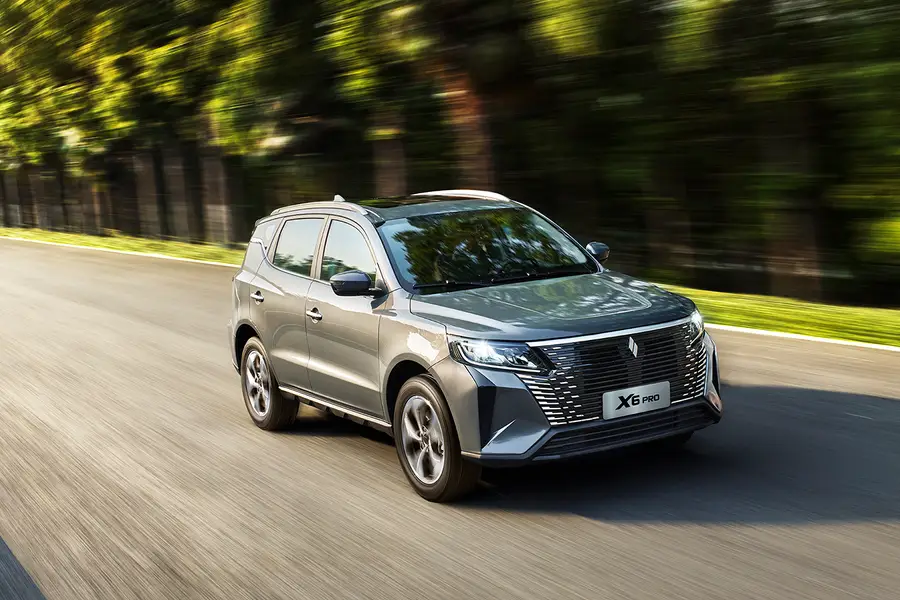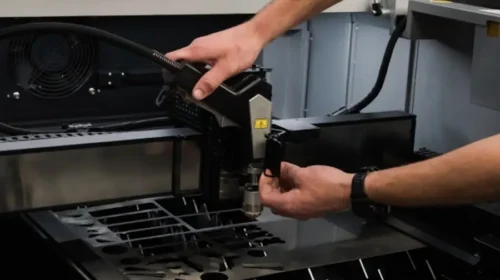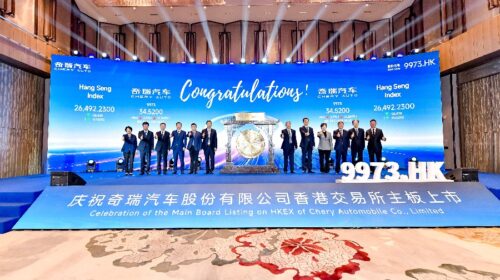Afari tries to charm investors with AI story rife with question marks

The carmaker has applied to list in Hong Kong, led by a new chairman described as having over a decade of deep experience in AI, but with few additional details
Key Takeaways:
- Chongqing Afari has applied to list in Hong Kong, reporting its revenue rose 40% in the first half of this year on rising NEV sales, as its gross margin fell into negative territory
- The carmaker counts Geely as a major partner, and recently signed a deal to sell 3% of its Shanghai-listed stock to Mercedes-Benz at a 25% discount
By Doug Young
A new Hong Kong IPO applicationfrom car and motorcycle maker Chongqing Afari Technology Co. Ltd. (601777.SH) is quite mysterious, built largely on the dream of one day becoming an AI technology giant. There’s just one problem with the company’s vision, namely, the fact that it has yet to generate any revenue from an AI business that it wants investors to believe is its most promising asset.
Afari’s new listing application, first published by the Hong Kong Stock Exchange on Oct. 16 and updated last Friday, is chock full of references to AI, which has, admittedly, become a buzzword among just about any publicly listed company these days. But Afari takes the AI hype to a new level, mentioning it nearly 200 times in its listing document, including 49 references in discussion of its “AI + Mobility” business.
The company’s revenue currently comes mostly from sales of cars and motorcycles, both traditional internal combustion and new energy vehicle (NEV) models, under the Livan and Maple brands. But those businesses are still relatively small, showing the company is having difficulty gaining traction in China’s crowded car market.
The latest data from the China Passenger Car Association shows Livan was China’s 29th best-selling car brand in September for NEVs, which currently account for about half of the market and make up half of Afari’s own car sales. That puts the company ahead of a few big foreign names like BMW and Honda in terms of China NEV sales. But it’s also well behind all of the major NEV brands, not to mention some lesser-known names like Arcfox, at 19th largest, and Spotlight, at 26th largest.
That said, Afari does appear to have several things going in its favor. The biggest is its relationship with Geely Group, one of China’s largest private car makers, whose brands include Volvo, Lotus and Polestar, as sell as its homegrown Zeekr NEV brand. Another is a recent tie-up that will see Mercedes-Benz buy 3% of Afari’s Shanghai-listed shares, in what looks like an important display of confidence in the company. More on those shortly.
But the company wants investors to believe that its biggest asset, and “secret sauce” behind its touted AI transformation, is a somewhat mysterious man named Yin Qi, now 37, who only arrived at the company last year and became its chairman in November. While the company’s other top executives have detailed biographies in the listing document, Yin’s introduction is remarkably thin on details, saying only that he has “over a decade of deep experience in AI vision and a proven track record as a serial entrepreneur.”
That probably explains why the company has no AI-related products currently on the market, despite all the hype AI gets in the listing document. “We have launched our technology solutions, primarily include intelligent driving, smart cockpit and robotaxi solutions,” it says in the document. But it quickly adds that as of June this year “we did not generate revenue from our technology solutions yet.”
Losing money
The company needs to quickly start generating money from its new AI initiatives, since its legacy car and motorcycle businesses aren’t going anywhere fast. More worrisome, the company’s cars now cost more to produce than it can sell them for, meaning it’s losing money for every car it sells, reflecting the rampant price wars that have plagued China’s oversupplied market for nearly two years now.
The company’s revenue fell about 20% in 2023, before stabilizing in 2024. It began to grow strongly this year on big gains for its NEV business, albeit from a modest base. It recorded 4.15 billion yuan ($583 million) in revenue in the first half of this year, up about 40% from 2.95 billion yuan in the year-ago period. That jump was fueled by a more than doubling of the company’s NEV sales over that period, though the 19,364 vehicles it sold during the latest six-month period is still quite modest.
About 63% of its revenue came from car sales in the latest period, while most of the remainder came from motorcycles. That didn’t help the company’s bottom line, since its car business posted a negative 0.9% gross margin during the first half of the year, while its motorcycle business performed better with a positive 11.7% gross margin. That mix gave the company an overall gross margin of just 5.5% for the first half of this year, far lower than the 15.8% for both Geely and Niu (NIU.US), one of China’s leading makers of electric scooters.
Those weak margins filtered down to Afari’s bottom line with a loss of 116 million yuan in the first half of this year, slightly wider than the 108 million yuan it lost in the year-ago period. The company has been losing money since 2023, though it is still quite cash rich, with 1.9 billion yuan in its coffers at the end of June.
Afari was founded back in 1997, and entered the car business six years later. It listed in Shanghai in 2010, and its new Hong Kong listing would make it the latest in a growing number of Shanghai- and Shenzhen-listed companies to make second IPOs in the more globally focused Hong Kong. Its big transformation appears to have come with its Geely tie-up and the launch of their jointly develop Livan brand in 2022. Geely and its founder Li Shufu currently own about 30% of Afari’s Shanghai-listed stock, and Geely is listed as a potential future buyer of Afari’s AI products.
Geely currently accounts for about 30% of Afari’s purchasing, which includes knock-down kits and automobile components. Geely is also Afari’s biggest single customer, accounting for between 30% and 40% of Afari’s revenue over the last three years. Mercedes-Benz is a more recent partner, agreeing in September to buy 3% of Afari’s Shanghai-listed shares for 1.34 billion yuan. While that looks like an important vote of confidence, we should point out that Mercedes purchased the shares at a 25% discount. What’s more, Geely is also a major partner of Mercedes, which was probably a factor behind the Afari tie-up.
The bottom line is that Afari’s future contains quite a few question marks that could leave investors skeptical. The lack of details on its new chairman and newness of its AI ambitions are both positives, but also raise quite a few questions the company will need to address in more detail. Meantime, few are likely to put much faith in Afari’s existing car business because it’s simply too small and shows no signs of becoming profitable again in the near future.
To subscribe to Bamboo Works weekly free newsletter, click here






